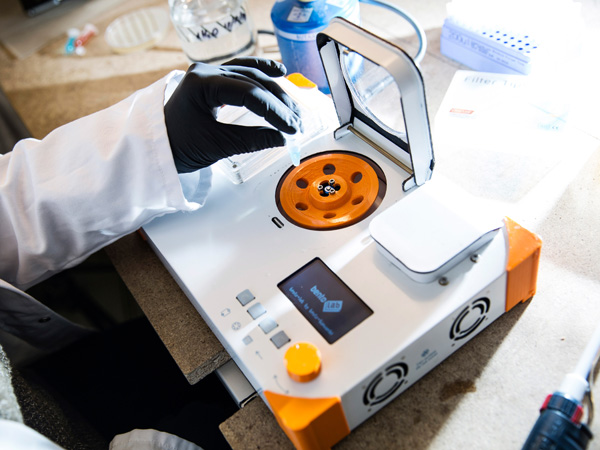From supply chain efficiency to sustainability – challenges in the food industry are bountiful, but between advancements in technology and ingredient innovation, up-and-coming businesses have the potential to address many of these issues while satisfying changing consumer tastes.

Food-X, a food business accelerator, has scoured the globe in order to invest in these early-stage entrepreneurs. Selecting eight of the world’s most cutting-edge food technology and product innovators to take part in its business accelerator program. With Croatia, India, Russia, Spain and the United States, all represented among the selected teams.
“As the first-to-market accelerator, the unmatched access to our extensive network has proven to be instrumental in propelling companies to the next critical stage. Since Food-X started in 2014, our startups have raised more than $26 million. We look forward to guiding our exceptional Cohort 9 entrepreneurs on their food innovation journey,” said Peter Bodenheimer, Program Director, Food-X.
The program takes place in New York City over the course of three months and gives the selected startups an opportunity to grow quickly through financial and human capital investments, mentorship and networking.
More than 60 percent of the startups are female-led or co-led, and while Bodenheimer says diversity is a factor in applicant considerations, ultimately, these teams were selected based on merit and potential for success.
“In a perfect world we want to make sure we’re looking where others aren’t,” explains Bodenheimer in an interview with Xtalks. “We’re looking for founders that don’t fit a stereotype of what a founder ‘should’ be. When you look beyond that, that’s where you find some of the best founders that are out there.”
These companies are among those pioneering food innovations, from a conversational commerce disrupter to an AI-powered real-time consumer insights startup. Bodenheimer shares the full list of Cohort 9 and the reasons why they were selected:
1. Vaartani
What they do: Provide AI-powered real-time meaningful insights derived from consumer conversations and reviews on individual products.
Why they were chosen: “A lot of companies are being inundated with data now, so if it’s just delivering them data it’s not enough. It’s got to deliver them actionable insights.”
2. Paragon Flavors

What they do: Provide natural and authentic powdered flavors captured within a clean-label wholegrain carrier.
Why they were chosen: “It’s a team with deep scientific backgrounds, so they’re both food scientists with experience at large companies who developed a novel approach, a patented approach to creating flavor powders for use in chips and other items that are clean label.”
3. Voix
A good staff is not only responsible for enhancing the services quality and productivity but eventually improves the business growth and retain the loyal, regular customers.
Staffing Challenges in the Restaurant Industry – https://t.co/KkKPIh1p5J – Medium https://t.co/bT9jYqH3jA pic.twitter.com/1o53LByFqj
— Voix (@voixai) August 9, 2018
What they do: Provide the first AI-automated restaurant voice assistant, which helps restaurant owners save time and money by automating orders, managing reservations, and upselling specials.
Why they were chosen: “In the restaurant industry, across the board, labor is one of the biggest problems. So, solving that problem using AI and voice as the interface and text as well, creating a system that optimizes the ordering process.”
4. Mushroom Cups

What they do: Create mushroom-infused coffee to boost energy, stimulate cognitive function, and supercharge the immune system.
Why they were chosen: “It allows people to bring this food that we believe has beneficial impacts into their daily consumption routine. Coffee being something that the majority of Americans drink of a daily basis, so we thought this was something that had a lot of legs to grow. Functional coffees and functional beverages are a really fast-growing category.”
5. Sweetie Pie Organics

What they do: Offering clean, organic functional food for moms-to-be, new moms and their babies, such as morning sickness drops, lactation bars, ready-to-drink lactation smoothies, and more.
Why they were chosen: “The health benefits of breastfeeding have become much, much clearer over the past few years. She [the founder] realized the baby formula space was shrinking. That they were losing share to moms that were choosing to breastfeed instead. She developed a line of product that’s gained some traction. It’s a high-quality product and is addressing a growing market that is in need of this type of product.”
6. Kafina

What they do: Create an organic herbal energy elixir through a plant-based formula. Ingredients include fair trade coffee, schisandra berry, fenugreek, cardamom and maple syrup.
Why they were chosen: “The product itself is phenomenal. It’s a single shot herbal energy elixir that’s got 11 milligrams of caffeine, which is equivalent to a cup of decaf coffee. But the kind of energy it gives you is just unbelievable. It’s geared towards people who care about what they put in their body and the type of energy that they’re getting.”
7. Simply Good Jars

What they do: Prepare and distribute fresh, convenient jarred meals under 600 calories in smart fridges with the mission of eliminating single-use plastics.
Why they were chosen: “In this case, we found the best mix of really high-quality product, along with real logistics and operational expertise. We believe that people are ready for this type of product being wherever they want. This is convenience at the next level, but also having a very high quality, fresh, healthy product.”
8. Mindwell

What they do: Produce vegan jerky snacks created from soy and mushroom.
Why they were chosen: “The numbers back up that snacking is becoming more prevalent in the regular diet of America. People are eating less sit-down meals and snacking more, so they’re looking for things that are healthier that meet their consumer ideals. So, plant-based, high protein and low cholesterol, this meets all of those points.”
To give these startups a foot-up in a competitive industry, the three-month program concludes with an opportunity for the company to present to angel investors, venture capital funds, and media.












Join or login to leave a comment
JOIN LOGIN